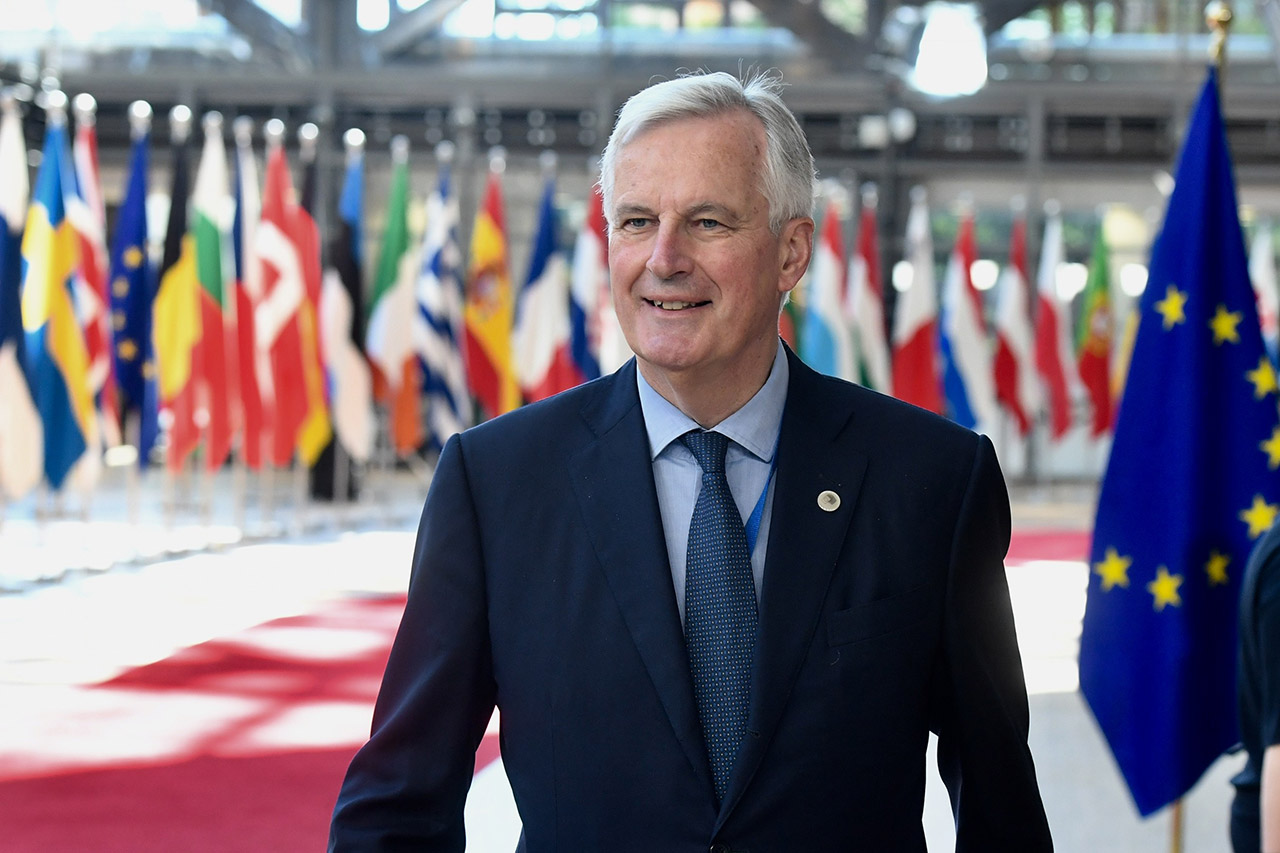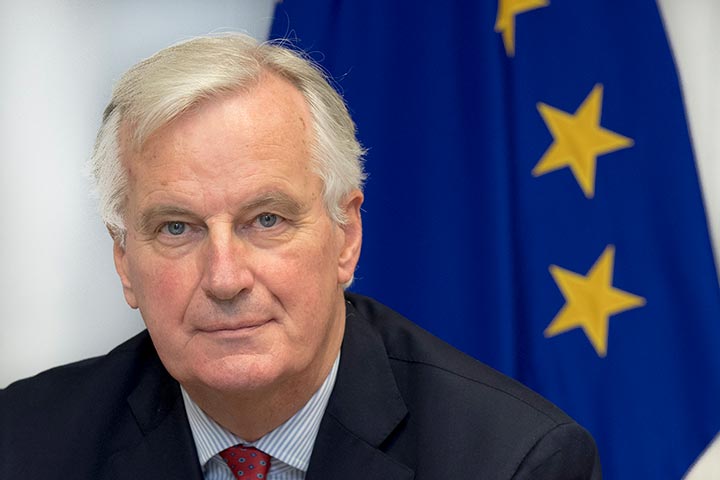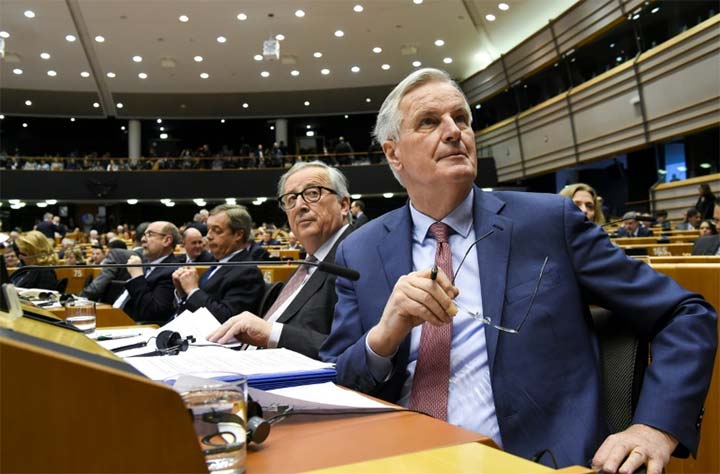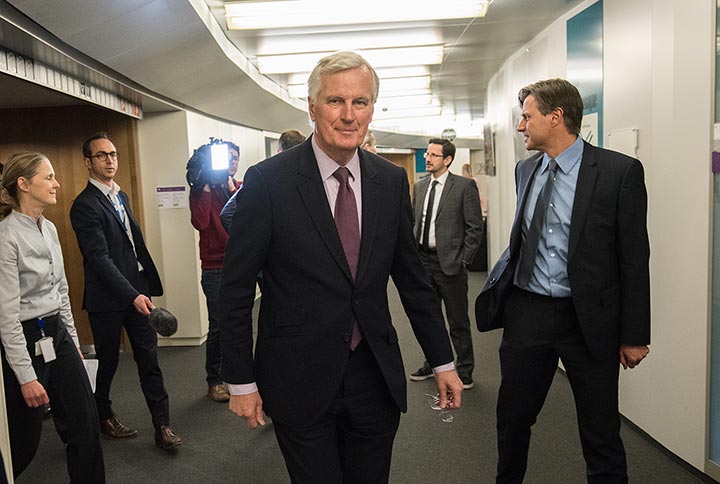Interview with Michel Barnier

date: 29/05/2019
The EU's chief negotiator for Brexit talks about the negotiations with the UK, how Brexit will affect European financial markets, and what lessons the EU should draw from the UK’s decision to leave.
In April, the European Council agreed to extend the Article 50 period. What should the EU do between now and 31 October?
The European Council made clear that this extension cannot be used to reopen the withdrawal agreement, which we constructed together with the British government and which was agreed between the EU and the UK in November last year.
The withdrawal agreement brings legal certainty where Brexit creates uncertainty, in particular by protecting citizens’ rights, our first priority. It settles the financial obligations. And it prevents a hard border on the island of Ireland in all circumstances and preserves the integrity of the Single Market. It also gives us the time, during a transition period, to negotiate our future relationship on the basis of the political declaration, which we have also agreed with the UK government.
Should the UK’s red lines evolve in the coming months, we would be ready to rework the political declaration and increase the level of ambition for the future, while respecting our fundamental principles.
Before 31 October, we will also need to continue the work led by the Secretariat-General to prepare for the ‘no deal’ scenario. With our 92 notices, sector by sector, our discussions with the Member States and our contingency legislation at EU level, we were ready already for the possibility of ‘no deal’ on 29 March. We are now reconsidering these preparedness measures to see if they need to be adapted in the light of the new deadline.
In the specific area of financial services, how do you assess the preparedness in light of the risks to financial stability and to the work on completing the banking union?
In order to avoid risks for financial stability, we have insisted, from the beginning of this negotiation, on the need for market participants to prepare. At this stage, a lot of preparedness by firms has already taken place, although this effort should continue.
Preparedness is also a matter for public authorities. Our task force worked intensively with DG FISMA, the European Central Bank/Single Supervisory Mechanism, the European Supervisory Authorities and the Single Resolution Board to make a comprehensive analysis of all possible risks related to the UK’s withdrawal.
Based on this assessment, the Commission has adopted some contingency measures to safeguard financial stability in the EU27. In particular, the Commission adopted time-limited equivalence decisions in relation to central counterparties (CCPs) and central security depositaries (CSDs) from the UK. In addition, a number of Member States are taking action in certain areas to address possible residual risks.
In this preparation, we always kept in mind the need to preserve financial stability, investor protection, market integrity and ensure a level playing field.
Our initiatives to complete the banking union, with a fully functional backstop to the Single Resolution Fund and the implementation of the European deposit insurance scheme (EDIS), are not affected by Brexit. In fact, one of our objectives was to make sure that the work of the EU and its institutions could continue properly irrespective of Brexit.
How could the EU build a capital markets union with strong funding channels for businesses in the absence of its biggest financial centre?
After Brexit, the UK will no longer be part of the EU’s internal market in financial services. This will inevitably have consequences for European financial markets.
The European Union will remain a large financial market, with 27 Member States and 450 million citizens, and it will remain open to the world. Moreover, financial markets are dynamic and UK firms have taken action to ensure that they relocate some activities that benefit from the EU financial services passport.
On the EU side, this highlights the importance of the work done by DG FISMA, under the leadership of Vice-President Valdis Dombrovskis to build a capital markets union. We should continue delivering on this, keeping in mind that a capital markets union is crucial to complement the banking union, to strengthen the Economic and Monetary Union and the international role of the euro, but also to accelerate the transition to a more sustainable economy.
You held various portfolios in the EU and France. What is the distinctive feature of the Brexit negotiations as compared to the many others you have known in the past?
Brexit is a ‘lose-lose’ negotiation! Even in the case of an orderly withdrawal, many citizens and businesses will be negatively impacted, in the UK but also in the EU27. As for a ‘no deal’ scenario, one big difference with a classic negotiation is that it would not leave us with the status quo. It would rather take us back to a distant past, with the return of tariffs and quotas.
However, by seeing what a Member State that chooses to leave the EU will lose, as a mechanical consequence of its decision, this negotiation also reminds us of what the EU27 will keep, in particular the Single Market and all the policies that we have built together over the last decades. Erasmus, the right to work in another Member State, the right for financial companies established in one Member State to provide their services anywhere in the EU: all this seems natural to us, but it is in fact unique in the world.
How did you manage to keep the 27 Member States on the same line in the negotiations with the UK?
This negotiation was also characterised by a very strong unity of the 27. This unity does not fall from the sky. It was already there before I started, as EU leaders felt a great responsibility for the EU project faced with such a crucial challenge.
We continued to build and reinforce the unity, through weekly meetings with representatives of the Member States and the European Parliament. I travelled several times to each of the Member States to meet Prime Ministers, the government, the national Parliament, but also social partners and representatives of civil society.
This method allowed us to identify specific concerns linked to Brexit and to explain precisely how we intended to address them in our negotiation positions.
This is of course a collective work – the work of the exceptional team in Task Force 50 that I was able to build thanks to the support and to the personal trust of President Jean-Claude Juncker.
Finally, such a level of unity would not have been possible without transparency, which has been unprecedented since the beginning of this negotiation.
Are there some lessons to draw from Brexit for the future of the EU?
Over the last two years, we have dealt with the consequences of Brexit. But we must also draw the lessons of Brexit. And understand why 52% of the British people have voted to leave the European Union.
There are of course a number of reasons, some of them specific to the UK political debate and to the British vision of European integration. But there are also reasons that are not specific to the UK. The feeling that the European Union does not listen enough to people, that it is not transparent enough, that it does not protect effectively its citizens and businesses against the downsides of globalisation.
We must listen to these feelings. We must find ways to respond better to these social concerns. We must also explain why, faced with challenges such as climate change, technological shifts or geopolitical tensions, we will always be stronger together, at 27. And we must continue to invest together, in green technologies and the renovation of buildings, in digital and artificial intelligence, in security and defence.



